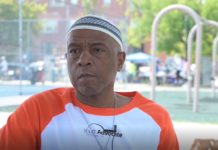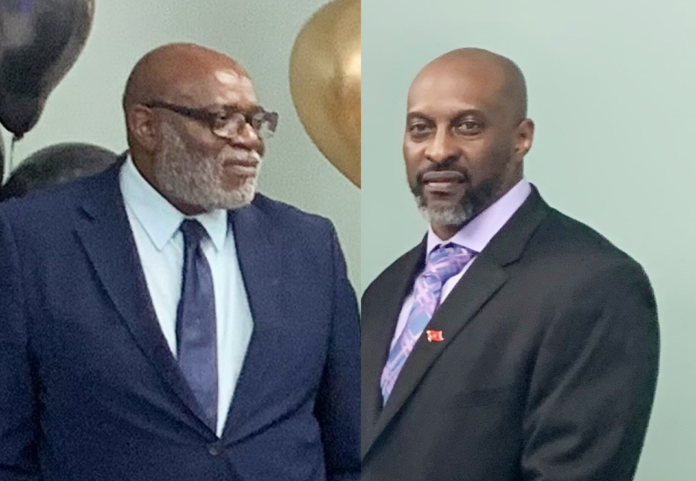
A year after serving more than three decades in prison, Roland Jeter El knows he can’t make up for past mistakes or the time lost because of them; but that’s not keeping him from trying. Never doubting that he would be released, Tyrone Little, who also served nearly 40 years before successfully reversing his conviction, shares his co-worker’s passion and sense of urgency for doing good. Together, Jeter El and Little are using their newfound freedom to help other formerly incarcerated men make the best of theirs.
Jeter El and Little work for Youth Advocate Programs (YAP), Inc., a 46-year-old nonprofit in 32 states and the District of Columbia with a reputation for making social change happen by providing safe, effective, trauma-informed community-based alternatives to youth incarceration and out-of-home child welfare and behavioral health placements. Jeter El and Little co-lead the new YAP Safely Home: Community Based Mentor Services for Returning Adult Citizens program, funded by The Office of Victim Services and Justice Grants in Washington, DC.
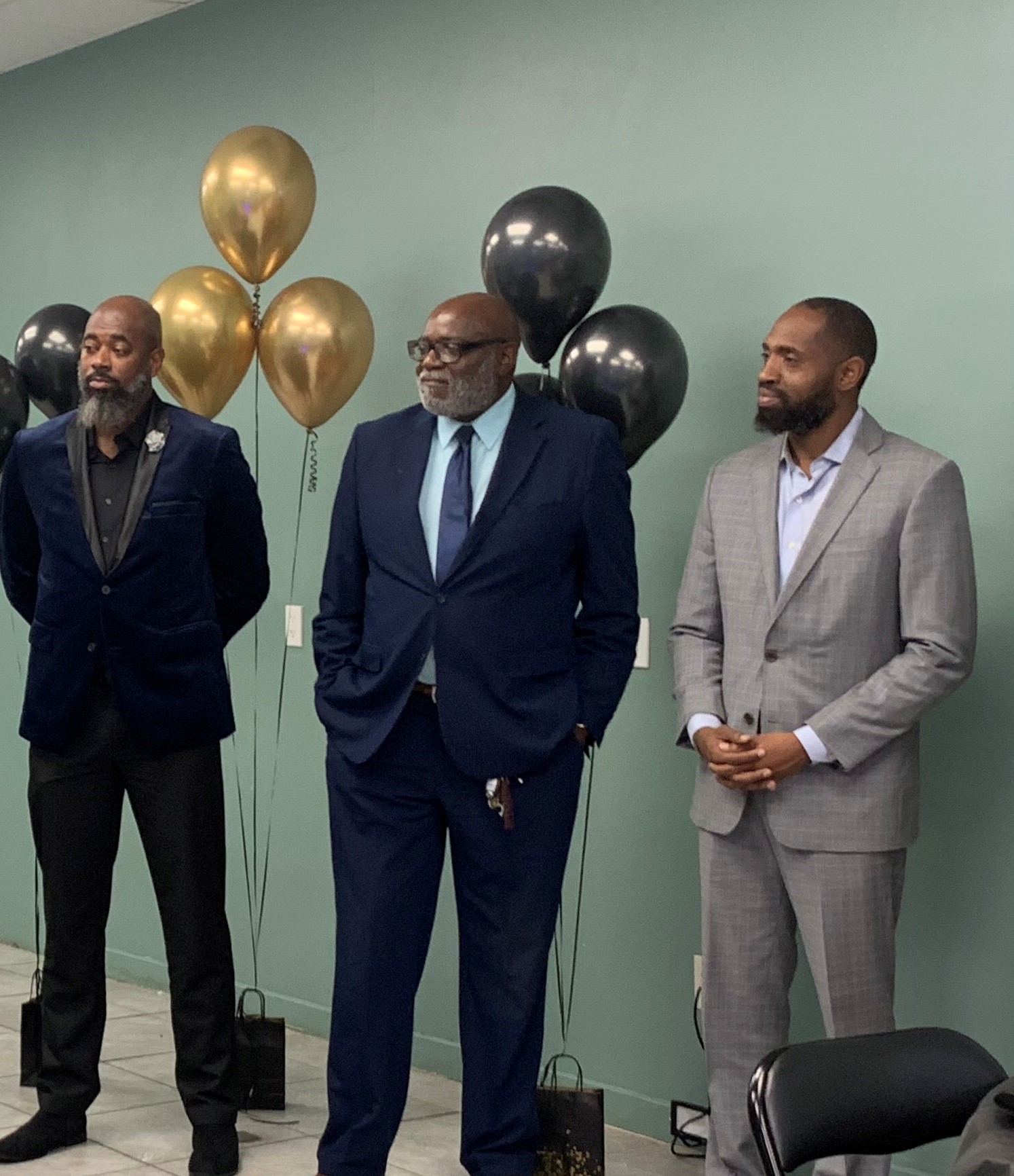
Jeter El and Little recently hosted a special graduation ceremony for the first five participants to complete the intensive trauma-informed services program. The graduates were among 14 men who grew up in Washington, DC and Maryland before serving from five to nearly 40 years for offenses ranging from selling drugs to murder.
“The men took what was taught in the workshops and restructured their thinking to pursue positive outcomes by getting jobs and diligently working towards establishing independence,” Little said. “In addition to vocational training, the program focuses on traumatology training, as well as higher education and learning, financial literacy, better social relationships with family and friends, and successful reintegration into the community.”
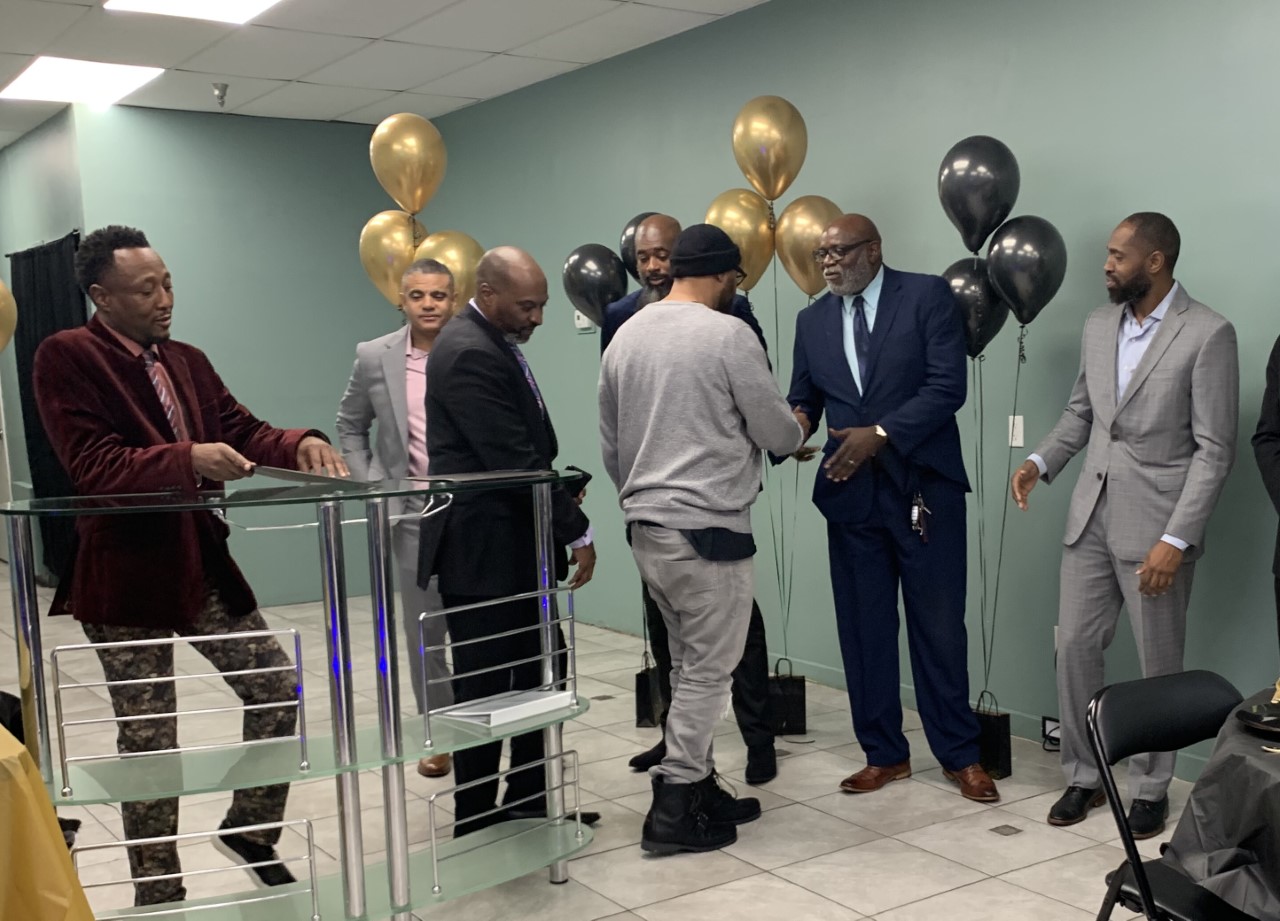
Inspired by YAP’s evidence-based youth justice model, the new adult re-entry services program is designed to help participants see their strengths and connect them and the loved ones supporting them to individualized economic, educational, and emotional tools needed to help them achieve their goals and give back to their communities.
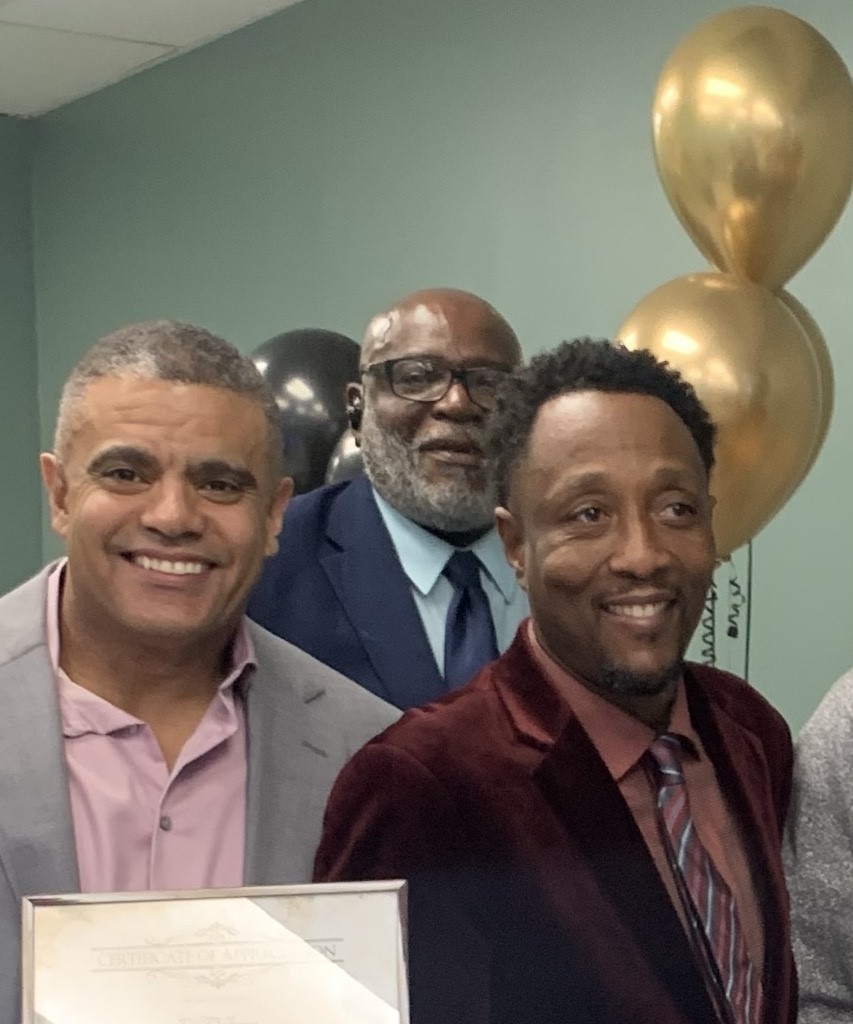
For the new program curriculum and implementation, Jeter El and Little work closely with YAP consultants Coppin State University Psychology, Counseling and Behavioral Health Professor Dr. Argin Hutchins; and Ed DeJesus, who created YAP’s YAPWORX social capital builders’ program, which focuses on the importance of positive personal relationships and professional connections to achieve career opportunities and success.
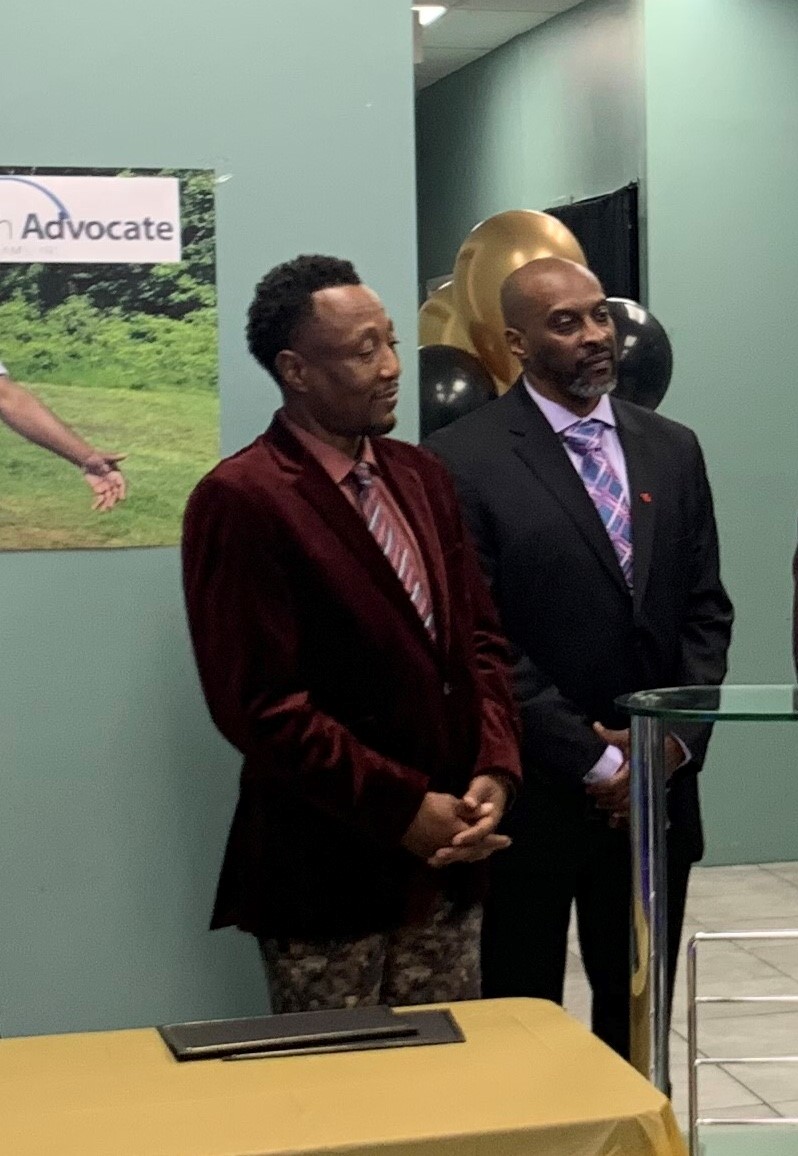
“These workshops are designed to change the way you think in a more healthy, positive, and productive way. You have to think and practice,” Jeter El said.
Little and Jeter El said addressing emotional needs is a priority when providing vocational services for formerly incarcerated adults, particularly those who, like them, spent decades behind bars.
“We deal with impaired behavior caused by early childhood experiences or things we cause on our own. Sometimes trauma is acute. You may have chronic or prolonged domestic violence or complex trauma,” Jeter El said. “That plus shock to your system while incarcerated. A lot of us were young adults. Lots of us had trauma associated with what causes us to exhibit behaviors outside of what’s socially accepted.”
The intensive curriculum includes 16 weeks of psychoeducational trauma-informed care sessions and eight weeks of social capital workshops, all with assignments and homework.
“It’s even more astonishing and awesome that these guys were willing and able to make practical application out of that,” Jeter El said.
The program borrows from other aspects of YAP’s evidence-based youth justice model as well, including an adherence to a “no reject, no eject” guiding principle and providing wraparound services that engage and support program participants’ family members.
“I can’t tell you the number of people I met in prison who had no family contact. “That’s how much pain they caused. A lot of people who serve time are desensitized,” Jeter El said. “We had to go to [program participants’] families to talk to them.”
Jeter El and Little said they were impressed with all the men in the new YAP program, even those who were unable to complete the modules. Jeter El said perhaps the one who had the most dramatic turnaround is a man who they saw as an authentic leader, but who initially presented as “tyrannical” because of his attitude and disposition.
“Dr. Hutchins would invite him to mentor others; he had fantastic qualities,” he said. “When he reversed that disposition, he got a job at a hospital. He now owns a house, owns a car; and has relationships with his family. When you change the way you think; you automatically change the way you act.”
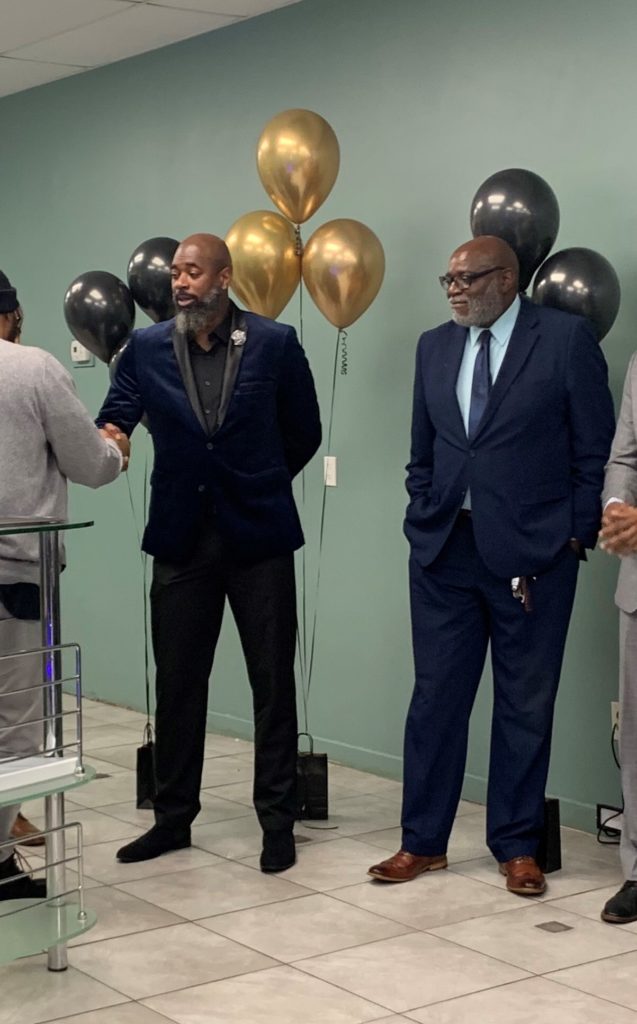
Little and Jeter El said that of the 14 men who began the program a year ago, they are all focused on making positive change. They say one participant was arrested on an outstanding warrant from 1992 and that as they work with his lawyers, they also continue to provide him with wraparound services and provide support to his fiancé.
The program leaders know firsthand that the curriculum works. In fact, that knowledge is at the heart of their own backstories leading them to their work at YAP.
Roland Jeter El

Jeter El said he was fortunate to have the support of his family throughout his incarceration. He said he surrounded himself with men like himself who got regular visits and frequent letters and calls from loved ones.
“I was already not a do-nothing kind of person,” he said. “It’s part of my DNA. I’m an entrepreneur at heart. In prison, I served on inmate advisory councils and defended guys on infractions.”
Jeter El said he had strong friendships with men in prison who also had strong family ties and said 99 percent of those men who are now out of prison have continued to do positive things.
“Those guys are phenomenal. There are at least 25 of them who I speak with on the regular. They’re disciplined; they have connections,” he said. “A very strong support system is hard to re-create that, but there are some things you can create. My support comes from not burning bridges.”
When Jeter El came home, he went straight to work, grateful that his family gave him a chair in his family’s barbershop. Within months of working at the shop, a YAP Advocate working with one of the nonprofit’s youth justice program participants, asked Jeter El to serve as a YAP Supported Work partner. YAP Supported Work employers promise to employ and mentor YAP program participants in exchange for the nonprofit paying the youth’s wages. Jeter El said yes and also agreed to be one of the volunteer YAPWORX Opportunity Advisors, volunteers who meet with program participants to tell them about their jobs and businesses and provide guidance and contacts. This was Jeter El’s introduction to the importance of what YAPWORX developer Ed DeJesus calls “social capital,” a network of people willing to share practical information about different kinds of jobs and how to use these contacts to land and keep one. It’s through his new social capital that Jeter El learned about the new opportunity to lead YAP Safely Home: Community Based Mentor Services for Returning Adult Citizens.
Tyrone Little
Having earned a bachelor’s degree in experimental psychology while he was in prison, Tyrone Little, now 65, was determined to continue his education as a free man.
In 2016, shortly after his release, Little applied to and was accepted at Coppin State University where he completed a second bachelor’s degree in applied psychology as well as a master’s degree. Little is set to begin a doctoral program this spring at Morgan State University. Shortly after he began his studies at Coppin State, an advisor at the college connected him to Dr. Hutchins.
She [the advisor] was my social capital. The whole faculty was my support,” he said. “Dr. Hutchins became my mentor.”
Little worked with Dr. Hutchins to create a conference dealing with trauma. He said that work led to a job at Focus on Recovery, where he learned the importance of providing comprehensive services to people battling addiction and trauma. Little also learned about YAP, where he worked with Dr. Hutchins who was consulting with the nonprofit on developing anger management classes.
Through those connections, Little met Regional Director Craig Jernigan and learned about YAP Safely Home: Community Based Mentor Services for Returning Adult Citizens.
“Craig asked if I wanted to try to establish a program in D.C.,” he said.
Little was happy to learn that he would work with Jeter El, who he said he heard about back when he was in prison for his work to support and defend other incarcerated individuals.
Next Steps
Jeter El and Little recently learned that the YAP Safely Home: Community Based Mentor Services for Returning Adult Citizens program has received a new grant from The Office of Victim Services and Justice Grants in Washington, DC to continue the work they started. Their hope is to further develop the program by creating a traumatologist internship for former program participants who are interested in using what they learn while receiving services to help others.
“They’d become certified pillars of support,” said Jeter El. “We don’t have enough dialogue on this – the need for trauma-informed care for people coming home from prison. We need to make sure we support them in every way.”
Note: This was produced by Youth Advocate Programs (YAP), Inc. under grant number 2022-JG-5012 awarded by the Office of Victim Services and Justice Grants, Executive Office of the Mayor, District of Columbia. The opinions, findings, and conclusions or recommendations expressed in this article are those of the contributors and do not necessarily represent the official position or policies of the Executive Office of the Mayor.
For more information on YAP, visit www.YAPInc.org. Follow YAP on Twitter @YAPInc.










